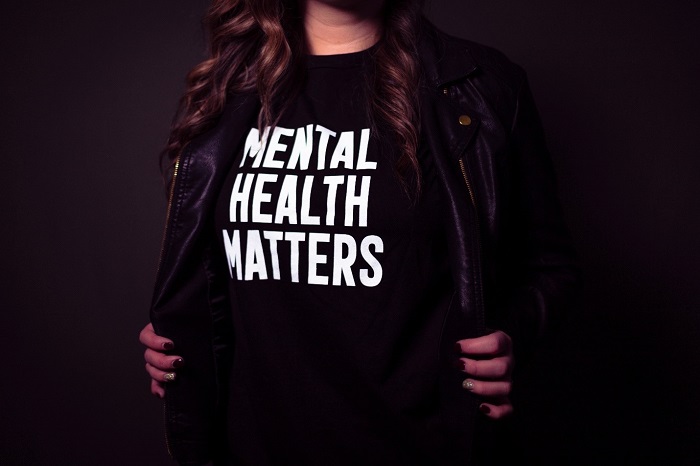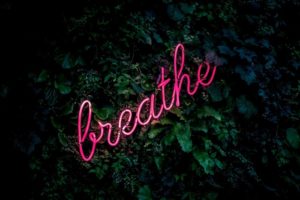- MN ABE Connect
- Archive
- October 10 – World Mental Health Day
 October 18, 2021
October 18, 2021
October 10 – World Mental Health Day
Wendy Sweeney, MA, Licensed Psychologist / PANDA Manager Lori Yurick, Administrative AssistantEighty-four percent (84%) of teachers surveyed by the EdWeek Research Center in March 2021 said that teaching is more stressful than it was before the pandemic. This high incidence is concerning and obviously may be impacting morale and mental health of staff in ABE programs.
Mental health and physical health are closely interrelated. Some of you may be noticing physical symptoms more than mental health symptoms. Common physical symptoms when stressed include feeling fatigued and on edge, having headaches, stomach aches or muscle tension, and struggling with sleep. Mental health symptoms may be less noticeable since they are often unconscious in nature. Common mental health symptoms when stressed include racing thoughts, distractibility, impatience, and feeling overwhelmed, depressed, or anxious.
If you are feeling stressed, anxious, or depressed, try some of the following strategies to improve your mental health:
 Get in the habit of using a deep breathing technique each day. Deep breathing calms your mind and relaxes your body. One suggestion is 6-2-4: breathe in for 6 seconds, hold for 2 seconds and breathe out for 4 seconds. Do this five times.
Get in the habit of using a deep breathing technique each day. Deep breathing calms your mind and relaxes your body. One suggestion is 6-2-4: breathe in for 6 seconds, hold for 2 seconds and breathe out for 4 seconds. Do this five times.- Write down three positive things that happen each day to remind you there are good things happening around you every day.
- Do some form of exercise. It is the easiest way to release tension and increase endorphins (the feel-good chemical). Exercise does not have to take up a lot of time. Try to get in the habit of doing short easy exercise routines, such as running up and down the stairs, doing five jumping jacks, or taking a brisk walk around the block.
- Limit your exposure to social media and negative news which can increase stress levels.
- Journal all your frustrations and feelings on paper. Getting it out of your mind and onto paper can be very therapeutic.
- Assess your relationships. Do the people in your life fill you up and support you or drain your energy? Eliminate or reduce your time with toxic people in your life and surround yourself with those you enjoy and who genuinely care about you.
- Take time to decompress from your day and do something you find enjoyable and relaxing as a way to rebuild your energy level.
- Seek professional help, if needed. It is a strength, not a weakness to ask for help. Mental health professionals can lend an objective ear and give you more tools to manage challenges in your life. Many employers offer an Employee Assistance Program (EAP) which often provides free counseling sessions.
- To find other mental health resources, please go to PANDA’s website at: https://pandamn.org/mental-health/resources-6/
- For more ideas, see the following article: https://mhanational.org/teachers-protecting-your-mental-health
In addition, Wendy will be presenting two sessions at the Fall Statewide Virtual Conference on Friday, November 5:
- “Managing Uncertainty; How to Use Social Emotional Learning Strategies to Help Adult Students”
- “Is Your Mental Backpack Too Heavy? Learn How to Lighten the Load and Understand Key Warning Signs for Anxiety Disorder”

Newsletter Signup
Get MN ABE Connect—the official source for ABE events, activities, and resources!
Sign UpArticle Categories
- ABE Foundations/Staff Onboarding
- ACES/Transitions
- Adult Career Pathways
- Assessment
- CCR Standards
- Citizenship
- COVID-19
- Cultural Competency
- Digital Literacy/Northstar
- Disabilities
- Distance Learning/Education
- ELA
- Equity/Inclusion
- ESL
- HSE/Adult Diploma
- Listening
- Math/Numeracy
- Mental Health
- Minnesota ABE
- One-Room Schoolhouse/Multilevel
- Professional Development
- Program Management
- Reading
- Remote Instruction
- Science
- Social Studies
- Speaking/Conversation
- Support Services
- Teaching Strategies
- Technology
- Uncategorized
- Volunteers/Tutors
- Writing